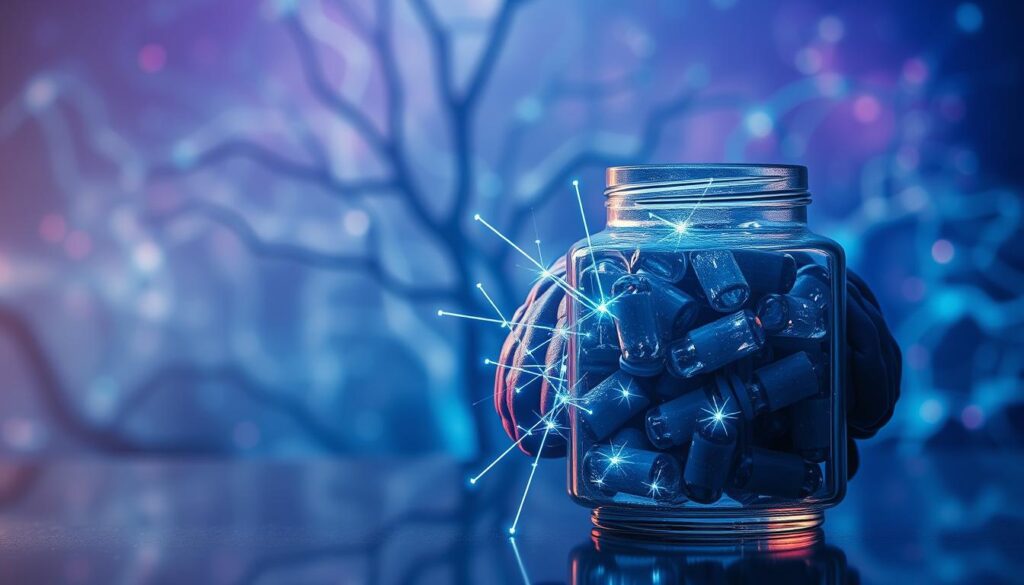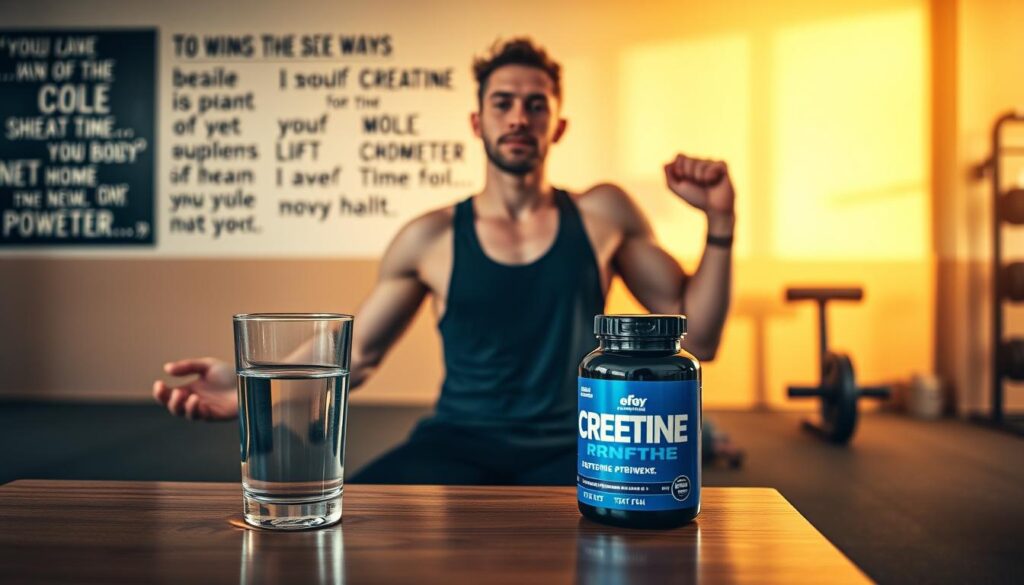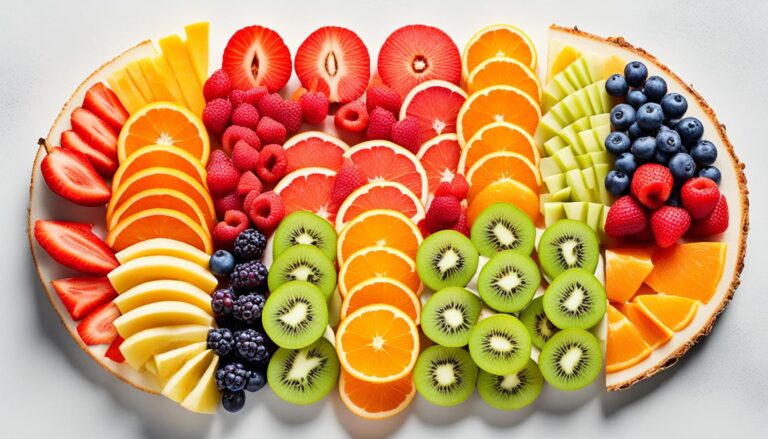Creatine is often linked to athletes wanting bigger muscles. But new studies show surprising creatine benefits that go beyond the gym.
It’s a natural substance used by millions now linked to brain health diabetes control, and fighting aging.
It can improve memory and cut down on fatigue in people with brain injuries. This research challenges old ideas about creatine supplement benefits. Let’s dive into what the science says.
Key Takeaways
- Creatine enhances memory and reasoning specially in older adults and vegetarians.
- It reduces Parkinson’s symptoms by protecting brain cells and improving motor function.
- Supplementation lowers post meal blood sugar by 14% through better glucose uptake.
- Reduces muscle fatigue by 50% in brain injury patients and speeds recovery after workouts.
- Shows promise in slowing skin aging and protecting DNA from oxidative damage.
Understanding Creatine More Than Just a Muscle Builder
Creatine is often linked to muscle growth, but it does more. It helps with energy production in cells all over the body. This is important for both physical activity and brain functions. It’s made in the liver kidneys and pancreas, and we also get it from foods like red meat and fish.
Supplements like creatine monohydrate increase its levels in our bodies. This makes it more available for important processes.

What Is Creatine and How Does It Work?
Creatine works with ATP our energy molecule. It helps store ATP as phosphocreatine in tissues. This is key for quick energy during intense activities like sprinting or lifting weights.
This is why creatine is beneficial for many parts of our body.
| Tissue | Storage Percentage | Primary Role |
|---|---|---|
| Muscles | ~95% | Energy for short bursts of activity |
| Brain | ~2% | Supports cognitive function and neuroprotection |
| Other organs | Remaining 3% | Cellular energy maintenance |
- Neurological impact: Studies show creatine supplementation improves memory and reasoning in adults over 60.
- Dietary relevance: Vegetarians may gain cognitive and metabolic benefits from creatine due to lower dietary intake.
- Safety profile: Approved by the IOC and NCAA it’s well-tolerated by most individuals but requires medical consultation for those with kidney disorders.
Creatine helps with ATP recycling, aiding in exercise recovery. It may also reduce muscle breakdown in older adults. Its role in maintaining cellular energy is key benefiting both athletes and those facing age-related decline.
Five Creatine Benefits That You May Not Know
Creatine is known for boosting strength, but it has many lesser-known creatine benefits. It helps produce ATP improving performance in many ways. Here are five science backed advantages you should know:
- Cognitive Function Support: Creatine can improve memory, attention, and speed. A 2020 review found it boosts brain energy, helping with tough tasks.
- Blood Sugar Regulation: Creatine may help control blood sugar levels. This is good for managing diabetes, when used with exercise.
- Recovery Acceleration: Creatine helps muscles recover faster after injury. It also increases training tolerance. Athletes see better sprint times and quicker recovery.
- Vegetarian/Vegan Advantage: Plant based diets often lack creatine. Taking supplements can help vegetarians and vegans build muscle and strength like meat-eaters.
- Anti-Aging Effects: Creatine with resistance training can fight muscle loss in older adults. It helps maintain muscle mass and function.
These creatine performance benefits show its wide range of uses. Creatine can improve brain function and aid in recovery. It’s beneficial for many people with different goals.
Creatine’s Surprising Impact on Brain Health
Creatine does more than just boost physical performance. It helps the brain too. The brain uses ATP for things like memory and focus. Creatine helps make more ATP in brain cells.
Research shows that taking creatine can make your mind clearer and stronger. This is a surprising benefit of creatine for your brain.

Read more: The Gut Brain Connection Nutrition
- Boosts Cognitive Performance: Creatine makes memory, reaction time, and solving problems better. It does this by making more ATP when you need it most.
- Protects Under Stress: People who don’t sleep well or are in low-oxygen places do better mentally with creatine.
- Supports Aging Brains: Older people remember and pay attention better with creatine. It helps with age-related brain decline.
| Study Focus | Key Findings | Population |
|---|---|---|
| Vegetarian Cognitive Performance | 20-50% improvement in memory and intelligence tests | Vegetarians vs. meat eaters |
| Older Adult Trials | Enhanced memory and attention scores | Participants over 50 years |
| TBI Recovery | Reduced brain damage severity post-injury | Animal models and clinical trials |
A systematic review of six studies involving 281 individuals found creatine supplementation improved short term memory and intelligence/reasoning scores in healthy adults.
Vegetarians might see the biggest benefits from creatine because they often eat less of it. Side effects like bloating are rare. Most people can take it without problems. This shows creatine is important for brain energy and helps keep the mind sharp at any age.
The Hidden Anti Aging Properties of Creatine Supplements

Creatine supplements do more than boost athletic performance. New studies show they help with aging and keeping cells healthy. They fight muscle loss, improve brain function, and protect DNA helping older adults stay healthy.
Cellular Protection and DNA Stability
Creatine helps keep cells’ energy systems strong. It boosts mitochondria reducing damage that speeds up aging. A study found it lowers oxidative stress in older adults helping fix DNA damage.
Creatine’s Role in Preserving Muscle Mass During Aging
- Prevents age related muscle loss sarcopenia by enhancing protein synthesis
- Improves muscle strength and endurance through ATP replenishment
- Reduces muscle atrophy during immobility, as shown in cast-induced studies
A 2016 study in Ageing Research Reviews showed creatine users kept 12% more muscle than others. This helps fight frailty and keeps people mobile.
Cognitive Function Preservation in Older Adults
| Benefit | Impact |
|---|---|
| Memory enhancement | Improved recall in 2-week supplementation trials |
| Neuroprotection | Reduces Alzheimer’s and Parkinson’s risk via neuroprotective pathways |
| Motor neuron support | In ALS trials, creatine extended survival by 17% and slowed muscle degeneration |
Creatine helps keep brain energy levels up, fighting age-related brain decline. Studies show older adults taking creatine do better in memory and thinking skills.
Creatine’s benefits make it a key part of anti-aging plans. It supports cells, muscles, and brain, offering a science backed way to age well.
How Creatine Supports Recovery Beyond Muscle Repair
Recovery is more than just fixing muscles. Creatine is key in helping the body recover fully. It reduces inflammation and improves sleep which are crucial for complete healing.

Read more: Fuel Your Muscles The Top Foods for Growth
Inflammation Reduction and Creatine
Creatine helps lower inflammation after workouts. A 2007 Journal of Athletic Training study showed creatine users had less inflammation. This means they recovered faster between workouts.
It also helps muscles recover faster which is great for athletes. This effect also helps with injury recovery, backed by research.
Sleep Quality Enhancement Through Creatine Supplementation
Creatine helps with brain energy leading to better sleep. A study on traumatic brain injury patients showed great results. Those taking creatine felt less dizzy and tired compared to those who didn’t.
Good sleep is linked to creatine’s ability to keep ATP levels up during rest. This is important for those with brain demands or sleep issues. These findings show lesser-known creatine benefits for brain recovery.
- Reduces muscle soreness and accelerates post-exercise recovery
- Enhances ATP resynthesis critical for cellular repair
- May improve brain energy metabolism during rest
Creatine’s benefits go beyond athletes. It helps people recover in many ways. By tackling inflammation and sleep it’s a powerful tool for health.
Lesser Known Creatine Benefits for Non Athletes
Creatine is known for building muscle but it has more uses. For those who don’t exercise much lesser known creatine benefits include better health in many areas. Studies show it can help in ways you might not expect.

- Bone Health: Creatine helps bones by boosting energy in bone cells. This could make bones stronger and lower the risk of fractures in older people.
- Metabolic Support: Creatine might help control blood sugar and lower bad fats. This is good for people who exercise and want to manage their blood sugar.
- Cognitive Clarity: It can also improve brain function. This means better focus and memory which is great for older adults.
- Skin Health: Some creams with creatine can make skin look younger. They do this by supporting energy in skin cells.
- Chronic Conditions: Early research suggests creatine could help with muscular dystrophy and depression. It does this by supporting energy in cells.
Vegetarians and vegans might see benefits from creatine because they don’t get enough from food. These surprising creatine benefits show it’s good for overall health. Always talk to a doctor before taking supplements.
Optimizing Your Creatine Supplementation for Maximum Advantage
To get the most from creatine supplement benefits follow the right steps. Pay attention to when and how much you take. Also mix it with other nutrients for the best results.
Timing and Dosage Considerations
There are two ways to take creatine:
- Loading Phase: 20g daily for 5-7 days to quickly fill muscles
- Maintenance: 3-5g daily after that for ongoing creatine health benefits
Both methods are effective, studies show. Take it with carbs to help your body absorb it better. Remember taking it every day keeps your muscles full even on rest days.
Complementary Nutrients That Enhance Creatine Benefits
| Nutrient | Benefit |
|---|---|
| Electrolytes | Helps with hydration and muscle size |
| Protein | Boosts muscle growth and repair |
| Beta-Alanine | Reduces tiredness during long workouts |
A 2021 review showed that adding carbs to creatine boosts creatine benefits for athletes by 5-10%. Always drink water with it to stay hydrated.
Who Can Benefit Most from These Surprising Effects
Vegetarians and vegans see big gains because they start with less creatine. Older adults can gain up to 3 pounds of muscle 2017 study. Women can get stronger and recover faster without getting too bulky 2021 studies.
Even people who aren’t athletes can see brain function improvements.
Potential Future Applications of Creatine in Medicine
Creatine is becoming more important in medicine, not just for sports. It might help with neurological disorders. For example studies found it could reduce cell death by 25% in Huntington’s disease models. It also improved motor function.
It could also help with Alzheimer’s and Parkinson’s though more human trials are needed. This shows great promise for treating these diseases.
Research is looking into how creatine affects metabolic health. It might help improve bone density and fight sarcopenia which is common in older people. Early studies on TBI show it could reduce brain damage and boost ATP production.
For ALS creatine might help mice live longer. But more research is needed to see if it works for humans.
- Neurological Focus: Investigating its role in Huntington’s, ALS and stroke recovery
- Musculoskeletal Support: Combating sarcopenia and osteoporosis through muscle and bone preservation
- Immune Modulation: Early trials suggest reduced inflammation via altered toll-like receptor activity
While lesser-known creatine benefits are promising, more human trials are needed. It’s important to consider how each person’s body uses creatine. This will help make treatments more effective.
So far, creatine shows promise in helping with recovery after surgery and managing metabolic syndromes. But we need more research to confirm this. Scientists are working hard to understand how creatine can help us better.
Conclus Harnessing the Full Spectrum of Creatine Benefits
Creatine does more than just boost athletic performance. It also improves brain function, fights aging, and aids in recovery. Studies show it can increase muscle growth by 33% and reduce performance decline by 16.2%. This makes it a key player in overall health for many people.
Research shows creatine’s benefits clearly. It lowers plasma ammonia by 20.1% and boosts sprint performance by up to 7%. It also helps keep muscle mass in older adults. These results match meta-analyses on lean mass gains and metabolic efficiency.
While creatine is known in fitness, its wider uses are not well-known. It supports brain health and reduces inflammation. It can help with athletic training and aging, if used correctly. Look for quality brands like Creapure or NOW Supplements for reliable products.
Before adding creatine to your routine, think about your goals. It’s great for brain health muscle retention or endurance. Always talk to a healthcare provider before starting supplements. They ensure it’s safe and right for you. The science backs up creatine as a safe versatile supplement for many health areas.
FAQ
What are the primary benefits of creatine supplementation?
Creatine boosts strength, power, and exercise performance. It also helps with muscle preservation as we age. It reduces inflammation and can improve recovery and sleep.
How does creatine affect cognitive function?
Creatine is key for brain ATP production, vital for thinking. Studies show it can improve memory and reasoning. It’s most beneficial for those with lower creatine levels like vegetarians and older adults.
Can creatine help with age related muscle loss?
Yes, creatine helps fight muscle loss with age. It supports muscle and improves function in older adults when combined with exercise.
Does creatine have anti aging properties?
Creatine may slow aging by supporting mitochondria and DNA. It also reduces oxidative stress. These actions could protect cells and slow aging.
How does creatine aid in recovery after exercise?
Creatine reduces inflammation and oxidative stress. This speeds up recovery. It also improves sleep helping athletes and active people recover faster.
Is creatine beneficial for non-athletes?
Absolutely. Creatine helps vegetarians those with metabolic issues, and those recovering from illness or injury. It boosts energy production, improving health and cognitive function for many.
What is the recommended dosage of creatine for optimal benefits?
Start with 20 grams daily for 5-7 days, then take 3-5 grams daily. Some skip the first week and take 3-5 grams daily for a longer time.
Are there any nutrients that can enhance the effectiveness of creatine supplements?
Yes taking creatine with carbs and protein boosts muscle uptake. Electrolytes can also improve hydration and performance.
What are some populations that might benefit significantly from creatine supplementation?
Vegetarians, older adults, women, and those with neurological or metabolic issues can benefit. It’s also good for those with high cognitive demands.
What does the future hold for creatine research and applications?
Research is looking into creatine’s use in neuroprotection metabolic disorders, and psychiatric conditions. Its potential in medicine is promising.





